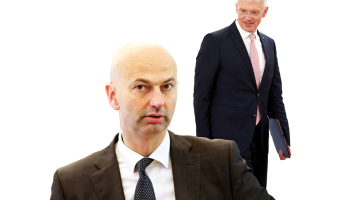
Eiropas Centrālās bankas (ECB) prezidente Kristīne Lagarda ierodas Briseles samitā. Foto: EPA/Scanpix
… at least if you are interested in monetary policy. Others may be excused although it is far from mundane what may happen at the European Central Bank (ECB) level in 2020.
The ECB has a new governor, Christine Lagarde, ex-IMF chief and ex-finance minister of France, seemingly much more of a dove than the front runner for the post just over a year ago, Jens Weidmann, head of the German Bundesbank. Now former governor, Mario Draghi saw significant disagreements at the ECB concerning the renewed Quantitative Easing (QE) programme with e.g. the Estonian governor being skeptical while the Latvian and Lithuanian governors backed Draghi’s line. Criticism of the ECB’s Quantitative Easing policy also came from a bunch of monetary policy heavyweights from Germany (obviously) and elsewhere. So, a 2020 with much more disagreement than usual seems to await us.














